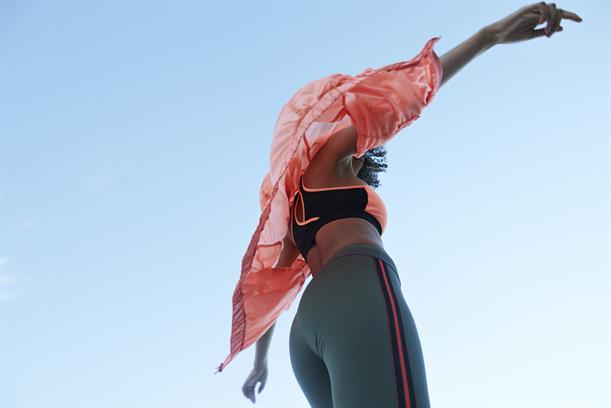
As we battle with the implications of the pandemic, fears are growing that women’s sport could lose a whole generation of grassroots participation as government bodies prioritise saving the men’s professional industry. But women’s sports have been a footnote to the men’s story long before Covid-19. In no other industry is gender split greater than subject split (when you hear basketball, do you picture men and women?). Nowhere else are we so openly and obviously willing to save one gender over the other.
While we have seen initial success in growing women’s football – with the incredibly successful 2019 Women’s Fifa World Cup, unprecedented sponsorship of the WSL by Barclays and the newly formed, celebrity backed LA Angel City Football Club – overall, the men’s game continues to dominate and gain priority when it boils down to investment.
Purplewashing is a real risk
If brands continue to interact with women’s sport teams, athletes or competitions in the same way they are today (often a check-box or “purplewashing” exercise), we’ll lose the opportunity to not just normalise sport across genders, but to exponentially grow the opportunity for current and future participants as well as brands too.
Celebrating sport, no matter the sexes, also means equal marketing spend (only 0.4% of the total commercial investment in sport goes into women’s sport, according to Athletes Assessment), equal prime-time slots and equal coverage for content. The more we see something, the more normalised it becomes. If there is a true desire to grow women’s sport, investment has got to match. If you gave women’s sport spend to men, it’s no doubt engagement, following and money would drop. How can we expect any different for women?
Where can we go from here?
Brands looking to partner with sports teams and athletes have an opportunity to change the course of sport for everyone. This can be achieved by getting more girls involved at grassroots, more women reaching professional level and a far greater fanbase of engaged fans – of all genders.
What needs to happen
-
Sponsor the sport not the team. Brands should be sponsoring both the male and female versions of their chosen sport, equally.
-
Focus on the fans. Targeting women with emotionally charged messages creates a feminine tone, stopping men from being inspired by these athletes too. It also removes the real power behind the athlete. Let’s celebrate and inspire based on talent, strength, achievement and power. This is why Nike’s “Greatest female athlete ever” campaign worked. And why World Rugby’s “try and stop us” campaign didn’t. It’s about sport power, not just girl power.
-
If you show it, they will come. Imagine a pub that played women’s games over men’s? Brands should partner with experience bars like Boxpark or Brewdog where women’s professional sport is put before men’s.
-
Create inspiring content wider than just gameday. Truly inspiring and motivating content that describes what it takes to be a world-class athlete, reach your peak, how you prep, what gameday is like. The fact a woman is the subject is the bonus.
-
Rethink your nomenclature. Unless you’re willing to say men’s basketball, don’t say women’s basketball. It’s one or the other. Semantics are everything – one simple naming structure creates an us vs them divide.
-
Don’t expect non-sport playing celebrities to do the work for you. You wouldn’t see Harry Styles as the face of an England men’s football participation campaign. We have to stop hoping non-playing female celebs can achieve anything different.
-
Showcase all the legends. Of the 22 Amazon Originals that focus on sport, only one includes women. Of the nine All or Nothing docu-series, not one focuses on a female team or athlete. Netflix fairs slightly better with 10 out of 44.
There is a long way to go in normalising women’s sport and Covid-19 puts us at significant risk of losing the good work already started. It’s vital we refocus, invest and challenge the tensions of gender inequality, with brands leading the way. Audiences are paying closer attention to how brands behave and want to be involved in changing the world as we know it. It’s time to truly align to the ambition for women’s support and not pull back at the first sign of hardship









